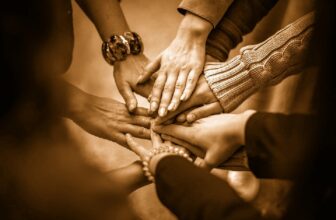In times of crisis, it’s important to come together and work collaboratively to overcome challenges. This is especially true when the crisis affects a community, whether it be a natural disaster, an economic downturn, or a health crisis. While it’s natural to feel competitive in these situations, creating allies is crucial to ensuring everyone’s success.
Benefits
One of the biggest benefits of creating allies in times of a catastrophe is the ability to share resources. When one group is struggling, another may have an abundance of resources. By working together, these resources can be shared to ensure that everyone has what they need to survive and recover. This can include everything from food and shelter to medical supplies and equipment.
In addition to sharing resources, creating allies can help to foster a sense of community and support. When people come together to face a common challenge, it can help to break down barriers and create a sense of unity. This can be incredibly important in times of crisis when people may feel isolated and alone.
Creating allies can also help to ensure that everyone’s needs are taken into account. When multiple groups interact, it’s easier to identify areas where resources are lacking and develop solutions that work for everyone. This is especially important when dealing with complex problems, such as disaster relief or economic recovery.
Creating allies is not an easy task
Of course, creating allies isn’t always easy. It can be difficult to put aside personal differences and work collaboratively with others. However, several strategies can help to facilitate allyship.
One important strategy is to focus on shared goals. When people have a common goal, it can be easier to put aside differences and work together. This can involve setting specific targets for recovery efforts or identifying key areas where resources are needed.
Another important strategy is to communicate effectively. Open and honest communication is critical in building trust and fostering collaboration. This can involve regular meetings or updates, as well as opportunities for feedback and input from all stakeholders.
Finally, it’s important to recognize and celebrate the contributions of all allies. When people feel valued and appreciated, they are more likely to continue working collaboratively towards a common goal. This can involve acknowledging individual contributions, as well as celebrating the collective successes of the group.
Creating allies in times of catastrophe can be incredibly important to ensuring everyone’s success. By sharing resources, fostering a sense of community, and working collaboratively towards a common goal, we can overcome even the most challenging of crises. While creating allies isn’t always easy, it’s an essential step toward building a brighter future for everyone involved. Stay safe!



